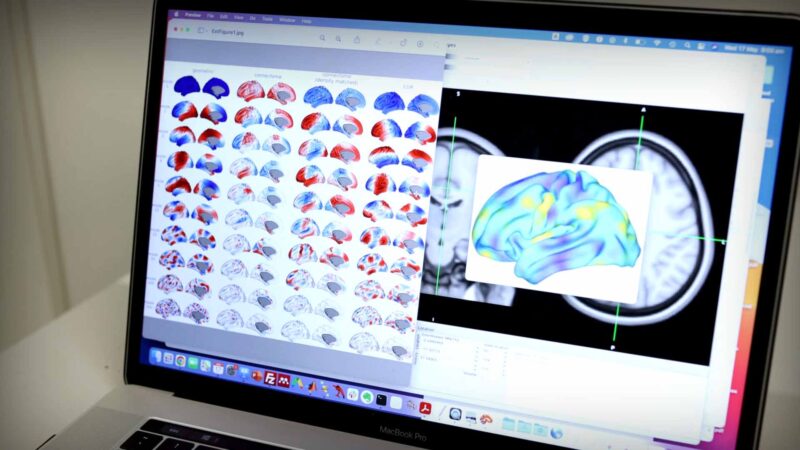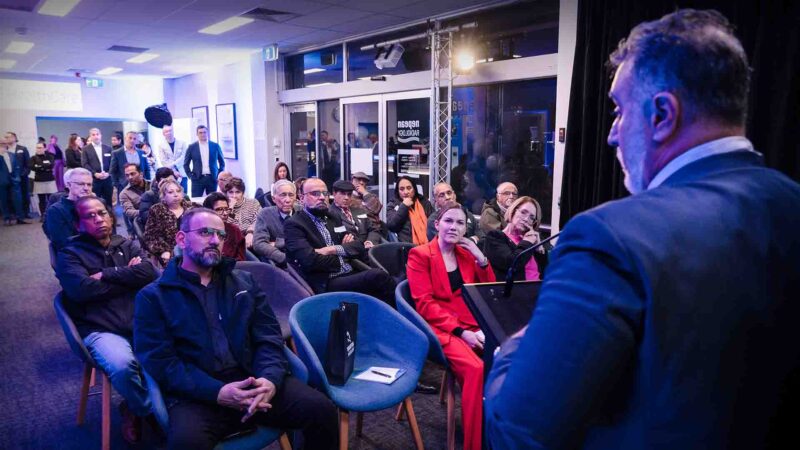INCREASING THE ED RESEARCH FOOTPRINT
Health Careers: Advice from an Emergency Physician in Research
Associate Professor Viet Tran, Emergency Physician, Royal Hobart Hospital
Filmed Hobart, Tasmania | September 2024
Associate Professor Viet Tran, an experienced emergency physician at the Royal Hobart Hospital. He spoke with Australian Health Journal about the crucial role of emergency departments as the frontline of hospitals, providing immediate care, diagnosis, resuscitation, and serving as a safety net for the healthcare system. Prof. Tran highlights the importance of understanding the daily responsibilities and core aspects of a specialty when choosing a medical career.
Recognising the relatively young status of emergency medicine as a specialty, Prof. Tran has taken on leadership roles to advance research in this field. In 2019, he became the Director of Emergency Medicine Research with the Tasmanian Department of Health, aiming to enhance the research footprint and collaboration within the specialty. His efforts have led to collaborations with national networks such as the PREDICT network and the National COVID research for ED, ultimately contributing to the development of emergency medicine research infrastructure in Tasmania.
Currently, Prof. Tran is leading a major MRFF study focusing on implementing clinical pathways in Tasmania to expedite the translation of research findings into improved patient care. This specific focus on this initiative is to minimise variations in patient care and address health inequities in rural and regional emergency department settings.
Associate Professor Viet Tran’s roles;
- Deputy Director of Emergency Medicine at Royal Hobart Hospital
- Associate Professor of Emergency Medicine, University of Tasmania,
- Founding Director, Tasmanian Emergency Medicine Research Institute
- Chair of the Tasmanian Emergency Departments Network
- Board Member, Emergency Medicine Foundation
- Co-Chair of the Tasmanian Health Senate
You Might also like
-
Landmark brain shape study
For over a century, researchers have thought that the patterns of brain activity that define our experiences, hopes and dreams are determined by how different brain regions communicate with each other through a complex web of trillions of cellular connections.
Now, a Monash University Turner Institute for Brain and Mental Health-led study has examined more than 10,000 different maps of human brain activity and found that the overall shape of a person’s brain exerts a far greater influence on how we think, feel and behave than its intricate neuronal connectivity.
-
Lens on patient care & allied health workforce across settings
The CEO of Allied Health Professions Australia (AHPA), Bronwyn Morris-Donovan spoke with Australian Health Journal about the following:
The structure and priorities for AHPA
The setting and disciplines in Allied Health
Allied Health representation in the Strengthening Medicare Task Force
Importance of a data strategy and interoperability in delivery of allied health services
Key allied health priorities hopefully addressed in Federal Budget.In the lead up to the Australian Federal Budget in May 2023, Australian Health Journal reached out to peak health industry bodies to hear about their priorities, either noted in pre-budget submissions lodged with Federal Government in January 2023 or in recent forums such as the Strengthening Medicare Taskforce.
-
Rapid trend shift in radiology technology and accessibility
Dr Mansoor Parker obtained his medical degree from the University of Tasmania. He then completed his specialist radiology training at Nepean Hospital, Sydney with subspecialty interests in Interventional Radiology and Pain Management, Musculoskeletal, Cardiac and Abdominal Imaging. Dr Parker is a qualified specialist since 2005 and is a member of the Royal Australian and New Zealand College of Radiologists and the exclusive Australasian Musculoskeletal Imaging Group (AMSIG) as well as the Interventional Radiology Society of Australasia (IRSA).



